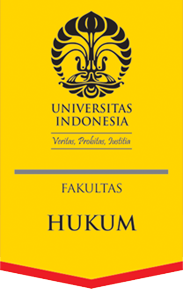DOI
10.21143/jhp.vol52.no1.3326
Abstract
In principle, World Trade Organization (WTO) prohibit each member states to make policy, both tarrif and non tarrif, which potentially disturb international trade. Nevertheless, there are exceptions that can be used by the state as a basis for justification to hold trade policy which consider contratry to WTO law. One of them is to protect public morality. The Halal Product Assurance Act (UUJPH) stipulate obligation of halal certification for food products that enter, circulate and trade in Indonesia. This act is considered as a protective and discriminatory policy. This research founds that although some provisions in UUJPH are discriminatory and contrary to WTO Law, it can be argued that those provisions were made in order to protect public morality in Indonesia and its justified under the law itself.
Bahasa Abstract
World Trade Organization (WTO) pada prinsipnmya melarang setiap negara anggota untuk melakukan kebijakan yang menghambat, baik tariff maupun non tarrif, perdagangan internasional. Meskipun demikian, terdapat pengecualian yang dapat digunakan negara sebagai dasar pembenar, salah satunya adalah demi melindungi moralitas publik. Adanya kewajiban sertifikasi halal terhadap produk makanan di Indonesia berdasarkan Undang-Undang Jaminan Produk Halal (UUJPH) dianggap sebagai kebijakan yang protektif dan diskriminatif. Penelitian ini membuktikan bahwa meskipun beberapa ketentuan dalam UUJPH bersifat diskriminatif namun dapat dibenarkan dengan argumentasi bahwa ketentuan tersebut dibuat dalam rangka untuk melindungi moralitas publik di Indonesia.
References
Jurnal
Akim,et.al. 2019. “The Shifting of Halal Certification System in Indonesia: From Society-Centric to State Centric”, Mimbar, Vol.35, No.1,
Fahmi Ali Hudaefi & Irwandi Jaswir, 2019. “Halal Governance in Indonesia: Theory, Current Practices and Related Issues”, Journal of Islamic Monetary Economics and Finance, Vol.5, No.1
Gabrielle Marceau. 2002. “WTO Dispute Settlement and Human Rights”, European Journal of International Law, Vol. 13,
Haniff Ahamat & Nasarudin Abdul Rahman, 2018. “Halal Food, Market Access and Exception to WTO Law: New Aspects Learned from Indonesia—Chicken Product”, Asian Journal of WTO & International Health Law and Policy, Volume 13, Nomor 2, September
Hayuun Durrotul Faridah. 2019.“Sertifikasi Halal di Indonesia: Sejarah, Perkembangan dan Implementasi”, Journal of Halal Product and Research, Volume 2., Nomor 2
I Gusti Ngurah Parikesit Widiatedja et.al. 2018. “Can Indonesia Invoke Public Morals Exception Under the World Trade Organization (WTO) For Prohibiting Cross-Border Gambling?” Yustisia, Vol.7, No.2.
Jamal Abdul Nassir Shaari and Nur Shahira bt Mohd Arifin, 2010, “Dimension of Halal Purchase Intention: A Preliminary Study”, International Review of Business Research Paper, 6 (4).
Mark Wu, 2008. “Free Trade and the Protection of Public Morals: An Analysis of the Newly Emerging Public Morals Clause Doctrine”, The Yale Journal of International Law, Vol.33 (215),
Michelle Limenta, Bayan M. edis, Oscar Fernando. 2018. “Disabling Labelling in Indonesia: Invoking WTO Law in the Wake of Halal Policy Objectives”. World Trade Review, Volume 17, Issue 3,
Ming Du, 2016, “Permitting Moral Imperialism? The Public Morals Exception to Free Trade at the Bar of the World Trade Organization”, Journal of World Trade, Vol. 50, No.4.
Muchtar Ali, 2016. “Konsep Makanan Halal Dalam Tinjauan Syariah dan Tanggung Jawab Produk Atas Produsen Industri Halal”, Ahkam, Volume XVI, Nomor 2.
Nargis Yeasmeen, 2015. “Interpretation of Public Morals Under Article XX of the GATT”, IOSR Journal of Humanities and Social Science, Vol.20, Issue 9,
Pelis Serpin, 2016. “The Public Morals Exception After The WTO Seal Products Dispute: Has the Exception Swallowed the Rules?”, Columbia Business Law Review, Vol.216, No.1:217,
Steve Charnovitz, 1998. “The Moral Exception in Trade Policy”, Vanderbilt Journal of International Law, Vol. 38 (689),
Susilowati Suparto et.al, 2016 “Harmonisasi dan Sinskronisasi Pengaturan Kelembagaan Sertifikasi Halal Terkait Perlindungan Konsumen Muslim di Indonesia”, Mimbar Hukum, Volume 28, Nomor 3,
Yuhanis Abdul Aziz & Nyen Vui Chok, 2013. “The Role of Halal Awareness, Halal Certification, and Marketing Component in Determining Halal Purchase Intention Among Non- Muslims in Malaysia: A Structural Equation Modeling Approach”, Journal of International Food & Agribusiness Marketing, Volume 25, Nomor 1
Buku & Tesis
G. Nuralieva. 2016. “Trade Liberalization vs Public Morals. To What Extent Members Can Justify Its Measures Under Article XX (a) of The GATT, LLM Thesis, University of Oslo, Norwegia, 2016
Mukti Fajar dan Yulianto Achmad, Dualisme Penelitian Hukum Normatif dan Empiris, Pustaka Pelajar, Yogyakarta, 2010.
Peter Van den Bossche, 2005. The Law and Policy of the World Trade Organization: Text, Cases and Materials, New York: Cambridge University Press,
Roni Hanitijo Soemitro. 1994 Metodologi Penelitian Hukum dan Jurimetri, Jakarta: Ghalia Indonesia
Soerjono Soekanto, 2006. Pengantar Penelitian Hukum, Jakarta: UI press,
WTO, 2007. WTO Analytical Index: Guide to WTO Law and Practice, 2nd Edition, Cambridge: Cambridge University Press,
Instrumen Hukum:
Al-Quran
General Agreement on Tariff and Trade, 1994
Marrakesh Agreement Establishing the World Trade Organization, 1994
Undang-Undang Nomor 33 Tahun 2014 tentang Jaminan Produk Halal
Sumber Lain:
https://databoks.katadata.co.id/datapublish/2019/09/24/berapa-jumlah-penduduk-muslim- indonesia, dikses pada 20 Mei 2020. pukul 01.00 WIB.
http://globalreligiousfutures.org/explorer/custom#/?, diakses pada 20 Mei 2020. pukul 01.00 WIB
https://www.statista.com/statistics/785499/halal-food-market-revenue-global/; https://www.dailysabah.com/business/2018/11/28/oic-global-halal-market-grows- with-migration-expected-to-hit-7-trillion-in-3-years, diakses pada 20 Mei 2020. pukul
01.00 WIB
Laporan Panel, WT/DS484/R.
Recommended Citation
Ruhaeni, Neni; Aqimuddin, Eka An; and Afriyadi, Hadian
(2022)
"MORALITAS PUBLIK SEBAGAI DASAR PEMBENAR TERHADAP KEWAJIBAN SERTIFIKASI HALAL PRODUK MAKANAN DI INDONESIA BERDASARKAN GATT-WTO 1994,"
Jurnal Hukum & Pembangunan: Vol. 52:
No.
1, Article 6.
DOI: 10.21143/jhp.vol52.no1.3326
Available at:
https://scholarhub.ui.ac.id/jhp/vol52/iss1/6
Included in
Administrative Law Commons, Comparative and Foreign Law Commons, Constitutional Law Commons, Criminal Law Commons, Natural Resources Law Commons

